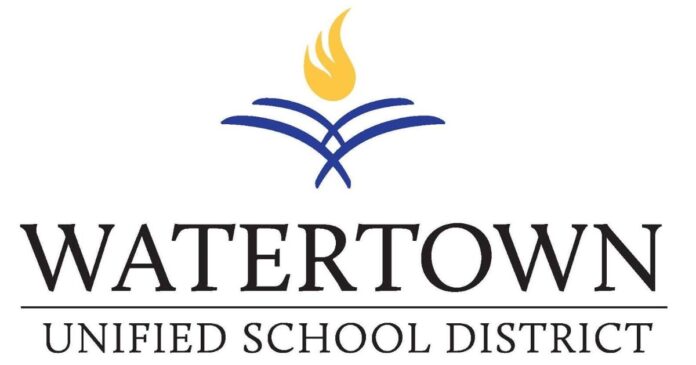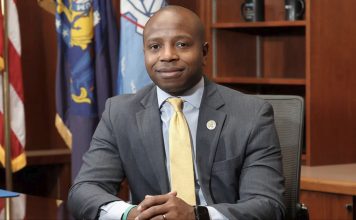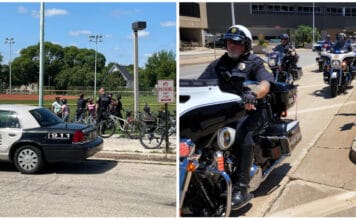“How is a non-verbal mentally disabled and physically disabled student supposed to do virtual schooling?” – Michelle Sukow.
The Watertown Unified School District suddenly moved some special education students with disabilities to virtual schooling this week, even though one affected child is non-verbal and in a wheelchair. Federal law requires that school districts provided needed services to special education students, educate them alongside non-disabled students, and teach them in the least restrictive setting possible.
Yet in Watertown, non-special education classes stayed in-person.
The Watertown Unified School District’s superintendent, Cassandra Schug, blamed staffing shortages in a response to Wisconsin Right Now’s questions and says the district hopes to have the kids back in person on Monday. However, the sudden switch to virtual schooling for some special ed students in the high school has left working parents scrambling to care for kids at home, including at least one with severe disabilities that make virtual schools impractical if not impossible.
Michelle Sukow is a friend of the family of one child in this situation, the girl who is non-verbal and in a wheelchair. She reached out to Wisconsin Right Now to highlight the problem.
“Watertown sent home special education students because of a teacher shortage and has put them on virtual learning. No one else. The kids who need in-person the most,” Sukow told WRN. She told WRN that the girl has had to go online for a total of about eight weeks this year alone due to “their COVID excuses. And no mention of how they will make it up!”
She said special needs kids need in-person services like speech and physical therapy. “We haven’t heard how they are going to make up all of the missed school,” she added. She questioned what happens to the federal funding received by the school district “without teaching.”
Sukow noted, “They sent them home in the middle of the day.” The girl she knows “is non-verbal and in a wheelchair.” Her parent “can’t find just anyone to watch her. So now he has to miss work again. How is a non-verbal mentally disabled and physically disabled student supposed to do virtual schooling?” asked Sukow.
She said the Watertown Unified School District’s actions “felt discriminatory to me. Someone needs to hold them accountable for staffing. We’ve been in a pandemic for a few years…”
If the school district was dealing with staffing shortages, Sukow questioned why non-special education students were not sent home instead.
This is a national problem. In October 2020, the American Institute for Research released a survey that discussed increased challenges schools were having nationwide in educating students with disabilities during the pandemic.
According to that survey, as of the 2018–19 school year, “schools enrolled about 7 million students with disabilities—approximately 14% of the total student population.”
Students with disabilities “have educational rights guaranteed under the federal Individuals with Disabilities Education Act (IDEA) of 2004. Even in the context of the pandemic in the spring of 2020, districts were required to comply with this federal legislation. This requirement was reiterated by the U.S. Department of Education…” the Institute wrote.
That requires that schools “provide instructional accommodations and related services—such as speech, physical or occupational therapy, or counseling—to help students meet goals stated in their IEPs and to ensure that students with disabilities receive a free and appropriate education.” An IEP is an individualized education program.
It also requires that schools with students with disabilities, “deliver education in the least restrictive environment, which requires that students with disabilities be educated, to the extent possible, alongside non-disabled peers in an environment that provides the appropriate amount of support and rigor for them to be challenged and to experience success while working toward grade-level or other appropriate standards”
Rural and high poverty districts reported having the most challenges in meeting these standards in the survey.
We contacted the Watertown Unified School District for comment and received this statement back from Superintendent Cassandra Schug on January 20, 2022:
“We transitioned two classrooms yesterday to virtual instruction at our high school because both of our teachers for those classrooms are out for the remainder of this week, and we have a number of positive COVID cases in these classrooms. We are unable to safely and effectively provide in-person instruction in those classrooms at this time due to staffing and the number of positive cases. These classrooms do serve some of our students with IEPs. We plan to return the classrooms to in-person instruction as soon as we can safely resume and provide staffing, and right now we believe that will be Monday. Students will be provided learning support during this absence. This is the only time this school year that these classrooms have not had face-to-face instruction.
As a district we are working to provide face-to-face instruction to all of our students and we are transitioning the smallest possible environment to virtual when we are unable to staff and/or there is a high percentage of positive COVID cases in a classroom or learning setting. Over the year we have transitioned other classrooms to virtual as necessary across the District for the shortest time possible. We are committed to staying safe to stay open to serve all of our students and families in the WUSD.”
We have sent Schug follow-up questions asking how a wheelchair-bound, non-verbal student is supposed to do virtual schooling; asking why the teachers were not available for teaching; and asking what she meant by “students will be provided learning support during this absence,” and whether that referred to online services only.





















![WATCH: Elon Musk Town Hall Rally in Green Bay [FULL Video]](https://www.wisconsinrightnow.com/wp-content/uploads/2022/04/Elon_Musk_3018710552-356x220.jpg)











